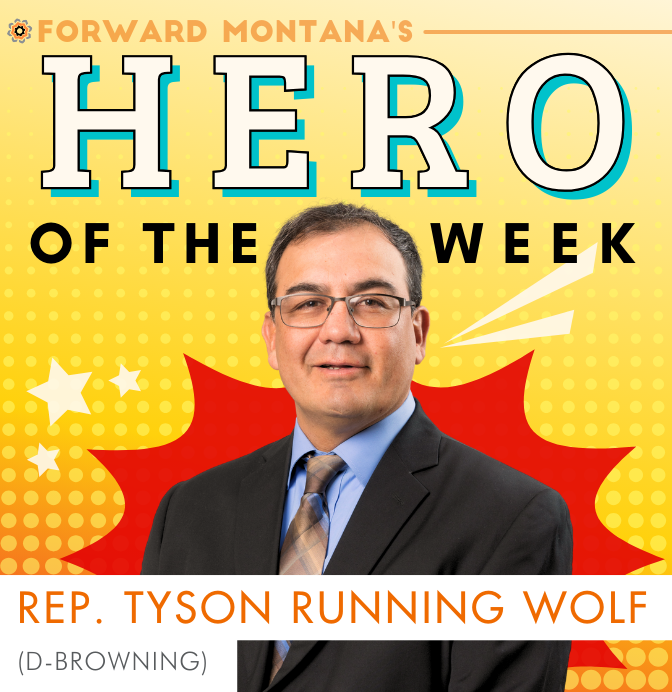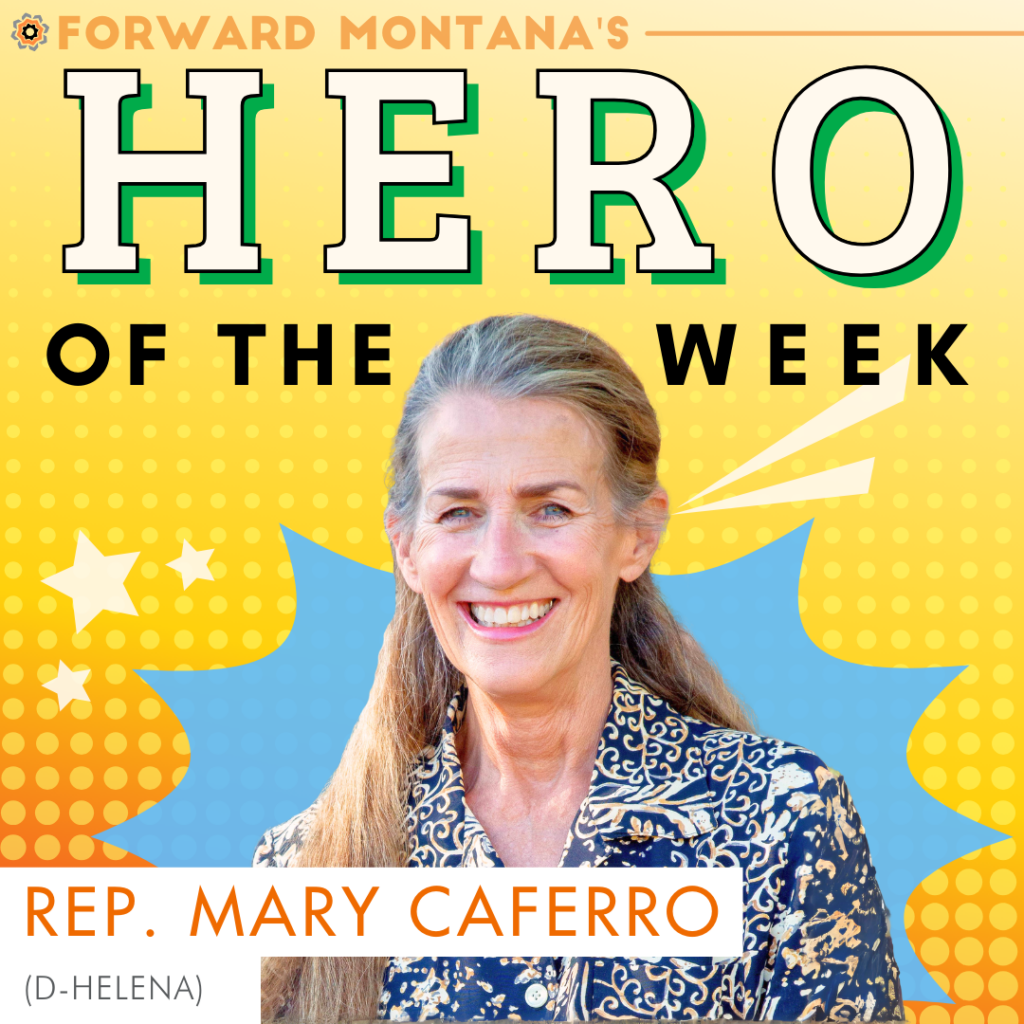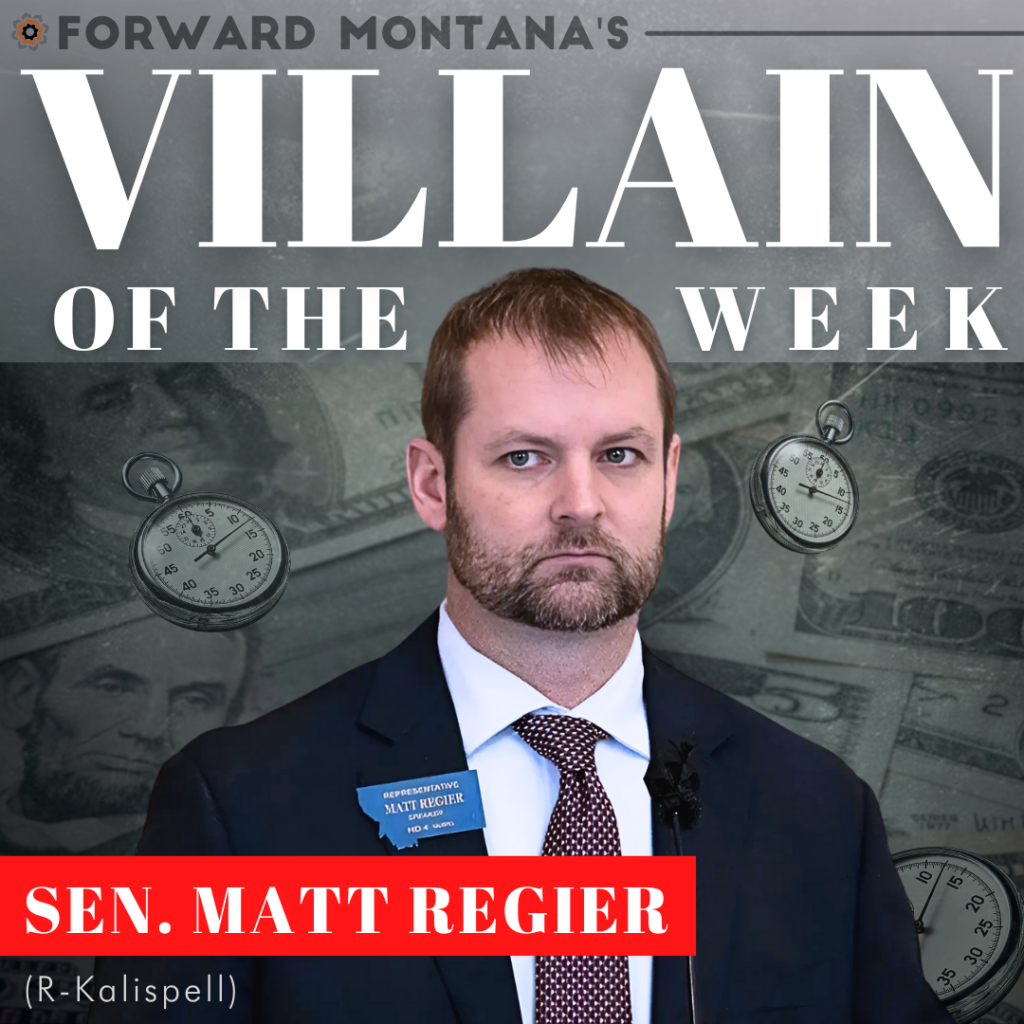Toplines: Capitol Rally for Medicaid, A Courageous Floor Debate, The Attacks on MT Judiciary, MMIP Task Force, The Hate of our State
As the second week closes out, we now have a clearer picture on what legislators are (and aren’t) prioritizing, and the attitudes they are bringing to this legislative session. Buckle up folks, it’s a bit of a long one.

Events Across the State
Billings
Monday, January 20th at the All Nation Christian church at 6pm join our team and the Black Heritage Foundation of Billings for an MLK day event. There will be live entertainment refreshments, and speakers honoring MLK.
Missoula
Wednesday, January 22nd from 6pm-8:30pm at Free Cycles Montana Abortion Access Program “Art and Advocacy: Abortion Access in Focus.” will feature a pop-up gallery and artist talk, and a panel discussion on the impact of the Dobbs decision with speakers from MAAP, Blue Mountain Clinic, Planned Parenthood, and Montanans for Choice. The event is free attend, donations are welcome!
Bozeman
Thursday, January 23rd from 5:30-7pm Housing Happy Hour at Shine in Bozeman. Join Bozeman Welcoming Neighbors for a drink and chat about Bozeman’s Pro-Housing Initiatives.
Whitefish
Friday, January 24th from 5:30-7:30pm at the Whitefish Community Center join us for our Introduction to Crochet and Fiber Arts Workshop! Come get yarn, learn to crochet, and tell us all your session-related questions.
Refreshments will be provided – please RSVP so we know how many hooks to bring!
At the Capitol
Friday, January 24th, 11am – 2pm at the Capitol Rotunda join the Forward Montana legislative team at this year’s Climate Advocacy Day. Stop by our table to grab some swag and stay to listen to the powerful speakers! More info here about the Climate Advocacy Day.
The Rallies Have Begun✊
Over 150 people joined together on the Capitol steps on Wednesday to rally in support of Montana’s Medicaid programs. Our organizing friends at Catalyst MT emceed the rally and hit home the key points of each speaker. As Alice Boyer of Catalyst MT stated, we are here to fight for over 80,000 Montanans who depend on Medicaid programs for essential care.

Among the speakers was Joel Rosette, the CEO of the Rocky Boy Health Center in Box Elder, who explained how life-changing Medicaid programs have been for providing preventive and specialty care to tribal communities. And the significant impact this has had for quality of life for individuals living in rural parts of our state.
Rep. Mary Caferro, Medicaid programs champion, gassed up the crowd and reminded everyone that the reason Medicaid programs continue to pass is because people like us show up, tell our stories, and demand action from our legislators. When she asked the crowd if they were ready to continue this fight to keep Montana’s access to affordable care, there was a raucous cheer from the attendees.

Two Medicaid bills will likely be heard this upcoming week: HB 230 and HB 245. Stay tuned for hearing dates and next steps.
If you are currently or have ever utilized Medicaid programs, we encourage you to submit public comment or give testimony in support. Sound both exciting and terrifying? Get in touch with organizers at Healthy Montana. They would love to support you in figuring out the best way to share your Medicaid story. Missed the rally? View the playback here!
After rallying on the Capitol steps for Medicaid, our legislative team sat in the gallery, feet from where protesters were arrested last year, to listen to the House Floor Debate on House Bill 121. For a reminder of what House Bill 121 is, peep last week’s session update.
The bill sponsor’s opening was an attempt to (poorly) assure everyone that this wasn’t about trans people, but by the time the floor voted to end the debate, the Republicans who stood in support of the bill were saying the quiet part loud – and proud: this bill is about targeting trans people.

In the face of this vile opposition, three Democrats succinctly covered why this type of legislation is harmful, to individuals and our community as a whole. It started with Rep. SJ Howell, who ended their speech with an unexpected, humorous quip on Republicans’ own messaging around Montana values of small government. Rep Ed Stafman was the second Democrat to speak in opposition, exposing the economic and legal foolishness of this Republican obsession with harassing trans people.

And finally, Rep. Zooey Zephyr stood in powerful defiance at a bill that Republicans won’t deny is also about a direct attack on her.
While the outcome was a party-line vote of 58-42 and we’ll have to endure another hearing in the Senate, we saw from our communities an outpouring of opposition to this bill.
Through public comment in committee last Friday, to the number of calls and messages to legislators – our hearts burst to see that we refuse to lose our fight against this type of legislation. Each message makes clear to legislators that we are fucking sick of having to talk about whether trans people get to live safely in our communities.
Judiciary Attacks Continue
If you are feeling overwhelmed with the number of bills related to changes to our judiciary, we get it, it’s a lot. Along with a number of new pieces of legislation, there are 27 bills that were drafted during the interim through the Senate Select Committee on Judicial Oversight and Reform.
For reference, the Senate Select Committee on Judicial Oversight and Reform was formed in the spring 2024, after the Montana Supreme Court reminded the legislature that they cannot pass unconstitutional laws.
In response, former Senate President Jason Ellsworth (SD 43 – Hamilton) put together this new Select Committee, declaring that the courts had overstepped the separation of powers and accused several courts of violating the state Constitution.
After developing the Republican membership for the Select Committee, Sen. Ellsworth invited Democratic leadership to send their members. And while you may see Democrats’ names listed in the membership, they refused to legitimize the committee and did not attend a single meeting.

So within the echo chamber of the Senate Select Committee on Judicial Oversight and Reform, a faction of Republicans drafted 27 committee bills. Which leaves us with the question: which are innocuous (if any) and which, if passed, would undermine the impartiality and power of our courts system? We hope to have a clearer answer for you by next week.

For now, SB 42, is raising the greatest concern for us, which would provide for the partisan election of judges and justices. Currently, our judicial elections are nonpartisan, meaning that candidates do not have a political party affiliation and instead are given the opportunity to run on merit and judicial values.SB 42 will also impact judicial campaigns and the type of money we could see flooding into those elections.
In Ohio, one of the seven states in the country that has partisan elections, people are concerned at the influx of outside money to influence the outcome of judicial elections as well as judges feeling pressure to rule with politics in mind, instead of their honest interpretation of current law.
The Forward MT legislative team are wrapping our heads around all the bills proposed to change the judiciary – and will have a more comprehensive analysis to clarify which bills are harmless and which ones could undermine the impartiality of our judicial system.
What We Are Watching 👀
🏘️HB 21- Passed through the House with bipartisan support of (75-25), and is headed to House Appropriations for a hearing on the cost of the bill. Where advocates will hopefully demonstrate that this proven program will be a win-win for all Montanans both economically and for affordable housing access. 🤩
#DYK this is the third time this piece of legislation has been introduced in Montana. During previous hearings, there has been a constant theme from the diversity experts in attendance as proponents recognize this bill as an important step in combating the housing crisis that the state is experiencing.

HB 21 would provide a workforce housing credit to provide further funding for affordable housing projects throughout the state, bridging gaps in funding for certified programs and ultimately provide for more affordable housing especially in rural communities.
This is accomplished by providing tax credits that are designed to be sold so that the created capital can be used towards housing projects. These are decisions that are made locally and will only be given to certified building projects that meet the necessary criteria, these credits can significantly help fund a project. We are very optimistic towards this bill and will continue to provide updates as it works its way through the Senate!
Hero of the Week- Rep. Tyson Running Wolf
(D)- Browning

This week, our hero is Rep. Tyson Running Wolf for introducing HB 83 which would set aside money to continuously fund the Missing and Murder Indigenous People’s Task Force.
Background: The Montana Missing Indigenous Persons Task Force, was created in 2019 with the goal to bring county, state, and federal agencies together to communicate more effectively and pinpoint the gaps in response when someone is reported missing.
The task force was reauthorized in 2021, receiving $10,000 for two years of operation, which proved to be inadequate funding for the Task Force to accomplish its goals. So, in 2023 another bill requested additional funding and an extension of the sunset date placed on the task force.
The result: the task force sunset date was extended from two years to 10, to ensure the task force exists through the next five legislative session. But the requested budget was slashed to 1/10th of what was requested, leaving uncertainty on how effective the task force can be.
Fast forward to this week: Rep. Tyson Running Wolf, who championed the 2019 bill, introduced House Bill 83 to create a special revenue account to allow the task to accept and generate its own funding, instead of relying on state funds.
Rep. Running Wolf shared in his testimony that this bill is a call to action – and his continued vocal advocacy on this issue is why he is our Hero of the Week.

Villain of the Week- Governor Greg Gianforte
The Hate of our State

On Monday, January 13, Governor Gianforte delivered his third state of the state address before a full room of legislators, state-elected officials, and the MT Supreme Court Justices. While we hoped that the Governor would work to coalesce two parties around reasonable solutions on housing and healthcare, the speech left some feeling disoriented. It felt for some that he was reading from two very different speeches, haphazardly cut and pasted together.
Depending on the topic, his tone swung between proclamations of ensuring prosperity in our state, to offensive requests for discriminatory policy be sent to his desk. The one piece we found inspiring was directing legislators to set aside $100M in the budget to raise teacher pay and support educators just starting their career, which had the entire legislature on their feet.
He boasted of dining with President-Elect Trump at Mar-a-Lago, while insisting that he was invested in supporting working Montanans.
He demanded that the legislature fast-track policies to cut taxes, insisting that he needed those on his desk by the beginning of February. This timeline, similar to last session’s tax cuts, would circumvent the budget conversations legislators are having until mid-February to determine which new and existing budget items should be included in our state budget for the next biennium.


He made direct eye contact with the Montana Supreme Court Justices, who sat in the first two rows, as he made clear his plans to support legislation that would erode the separation of powers and undermine the impartiality of our judicial system.
But what stood out most to us is his hateful anti-trans rhetoric that got the most attention from Republicans with loud applause and a standing ovation. He requested that bills like HB 121 be rushed to his desk for signature. He articulated that one of his highest priorities is to pass discriminatory policy. And for this reason, Governor Gianforte is our villain of the week.













































